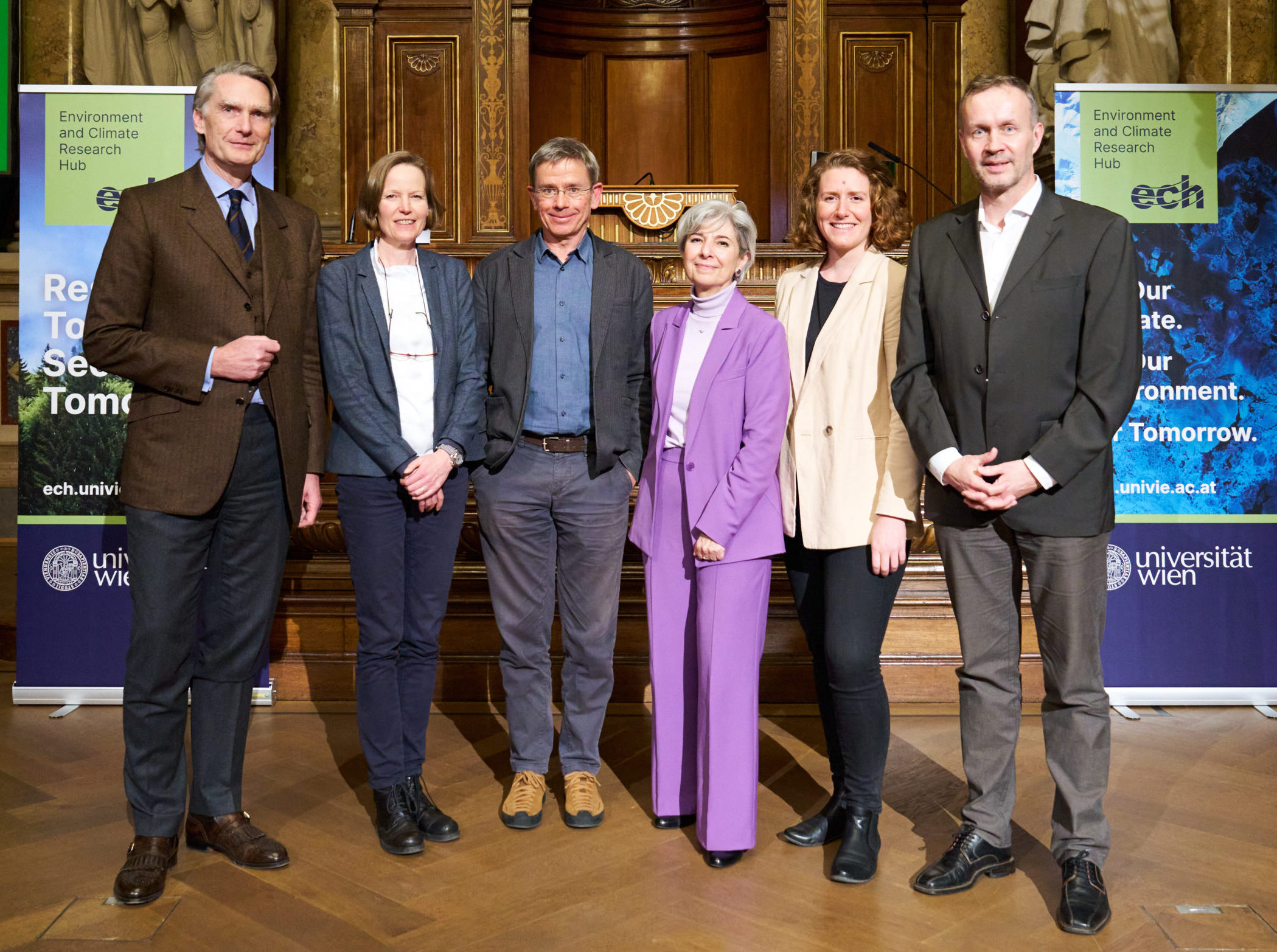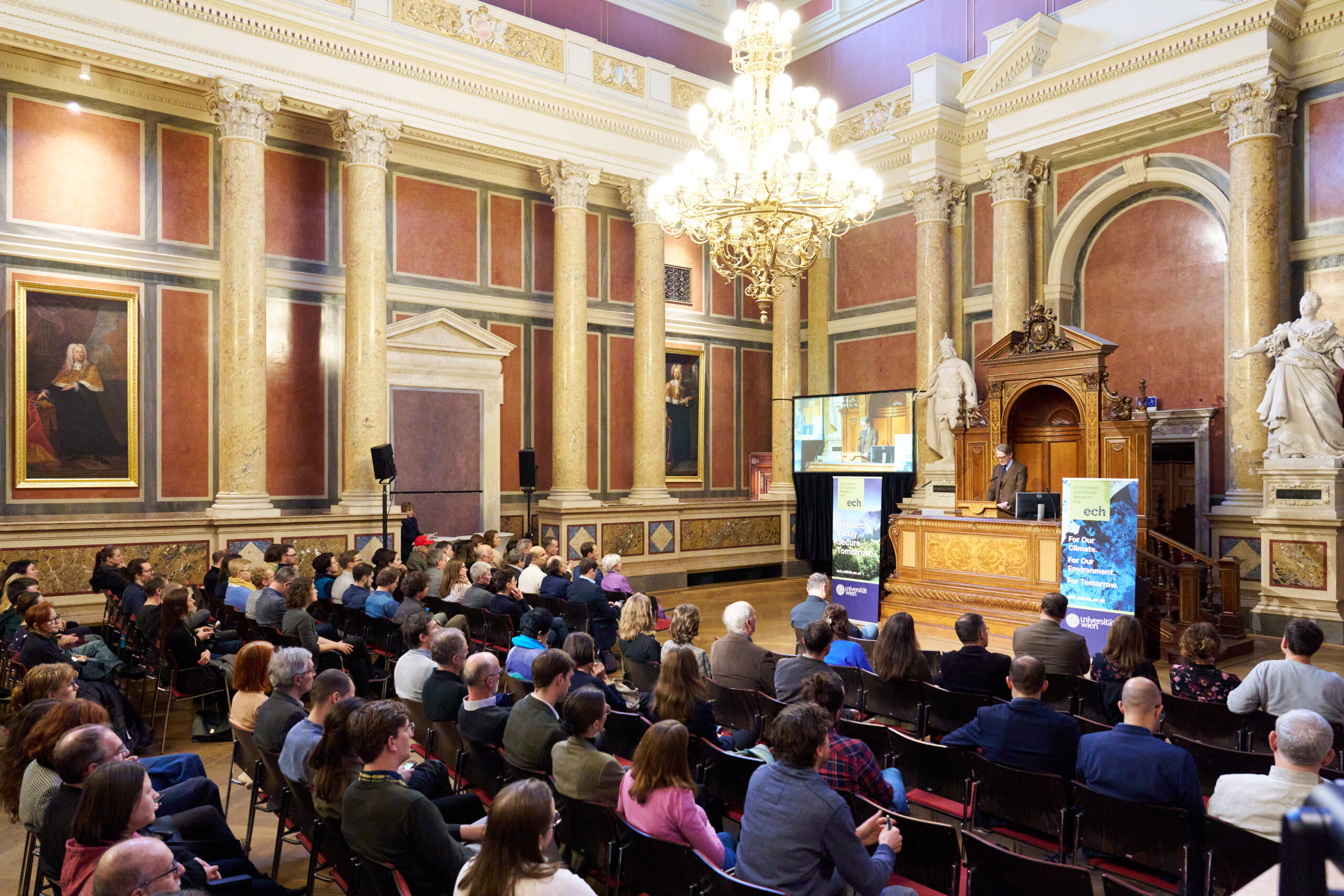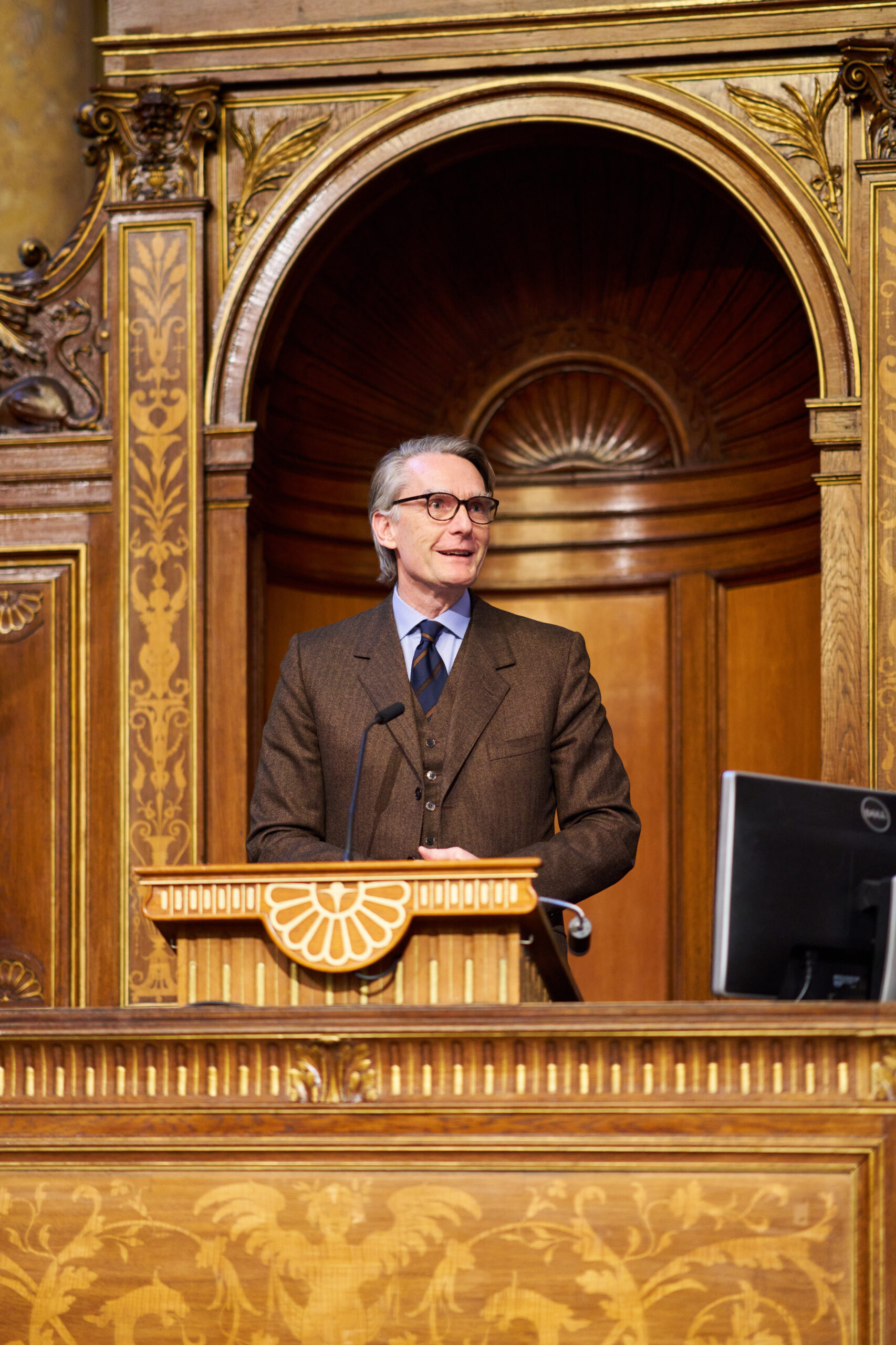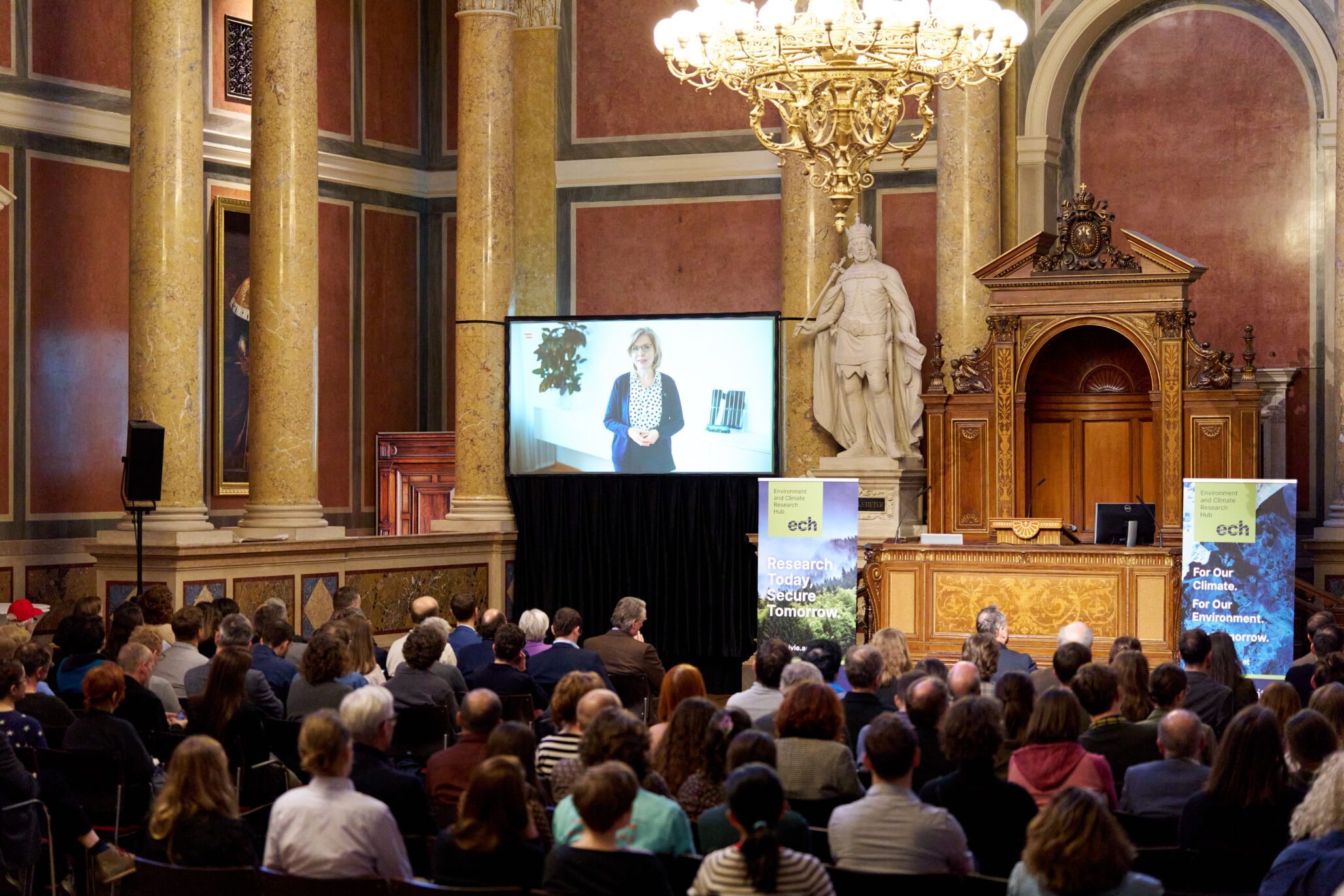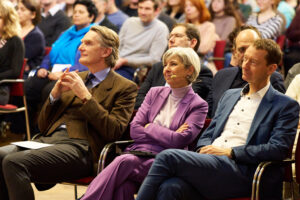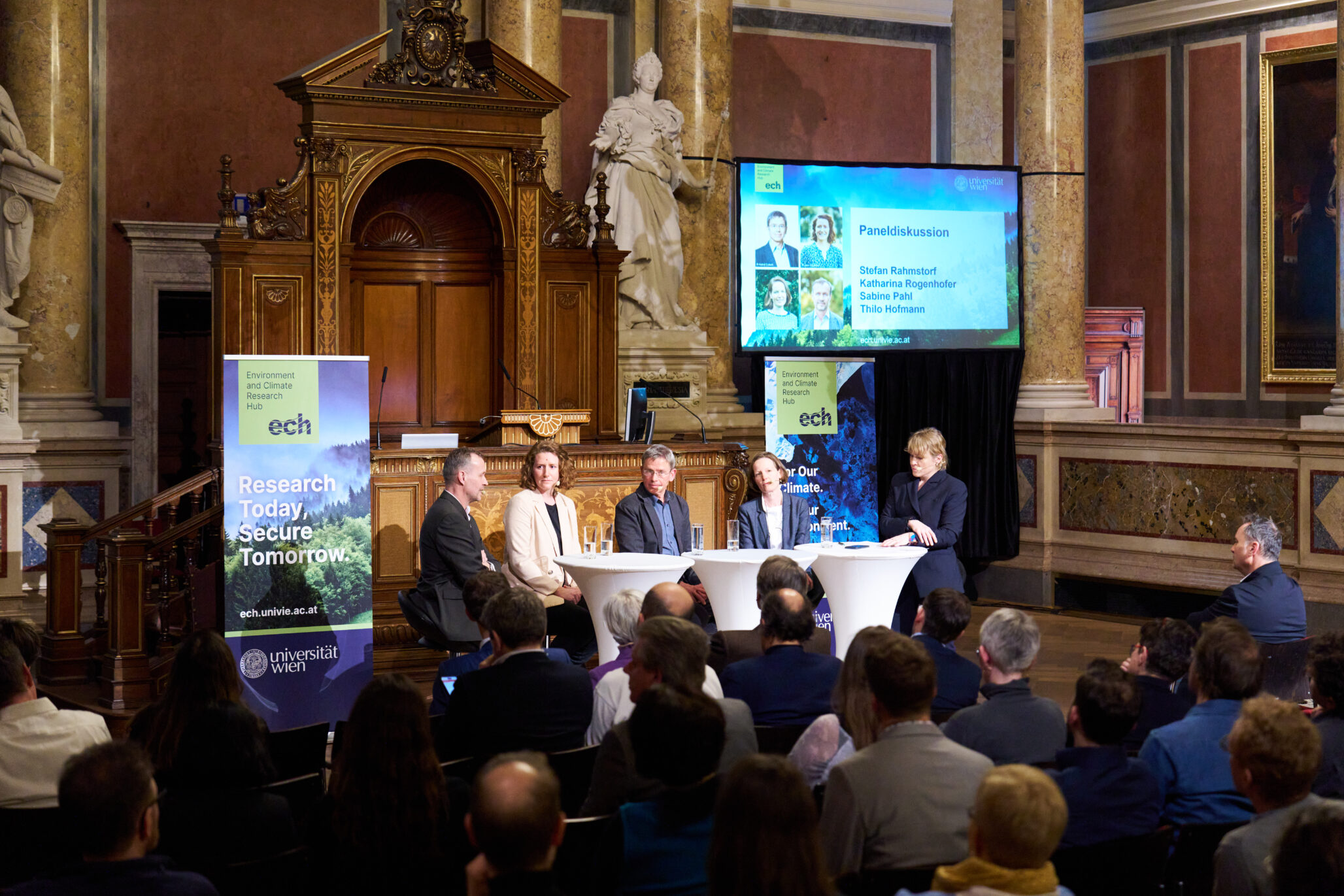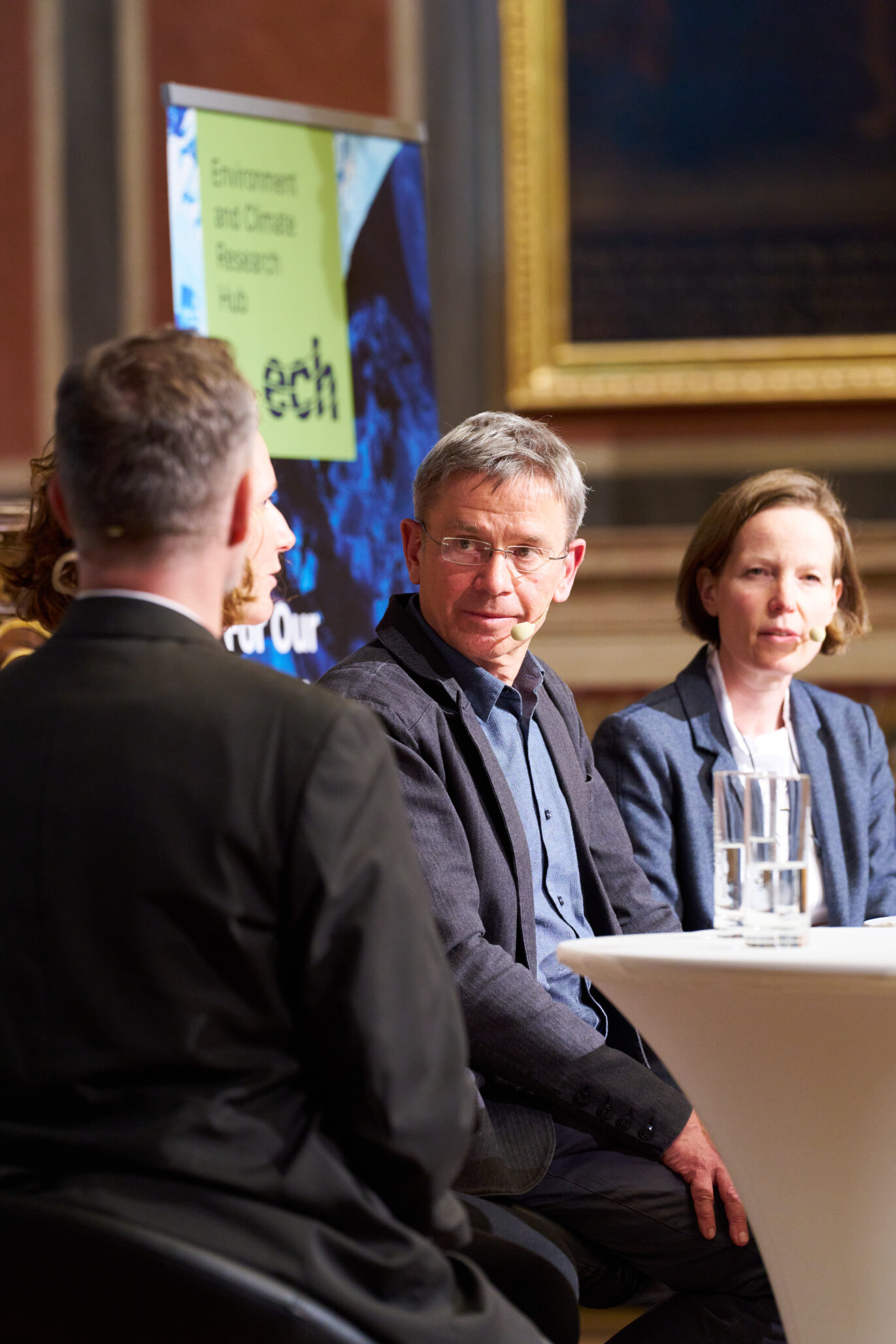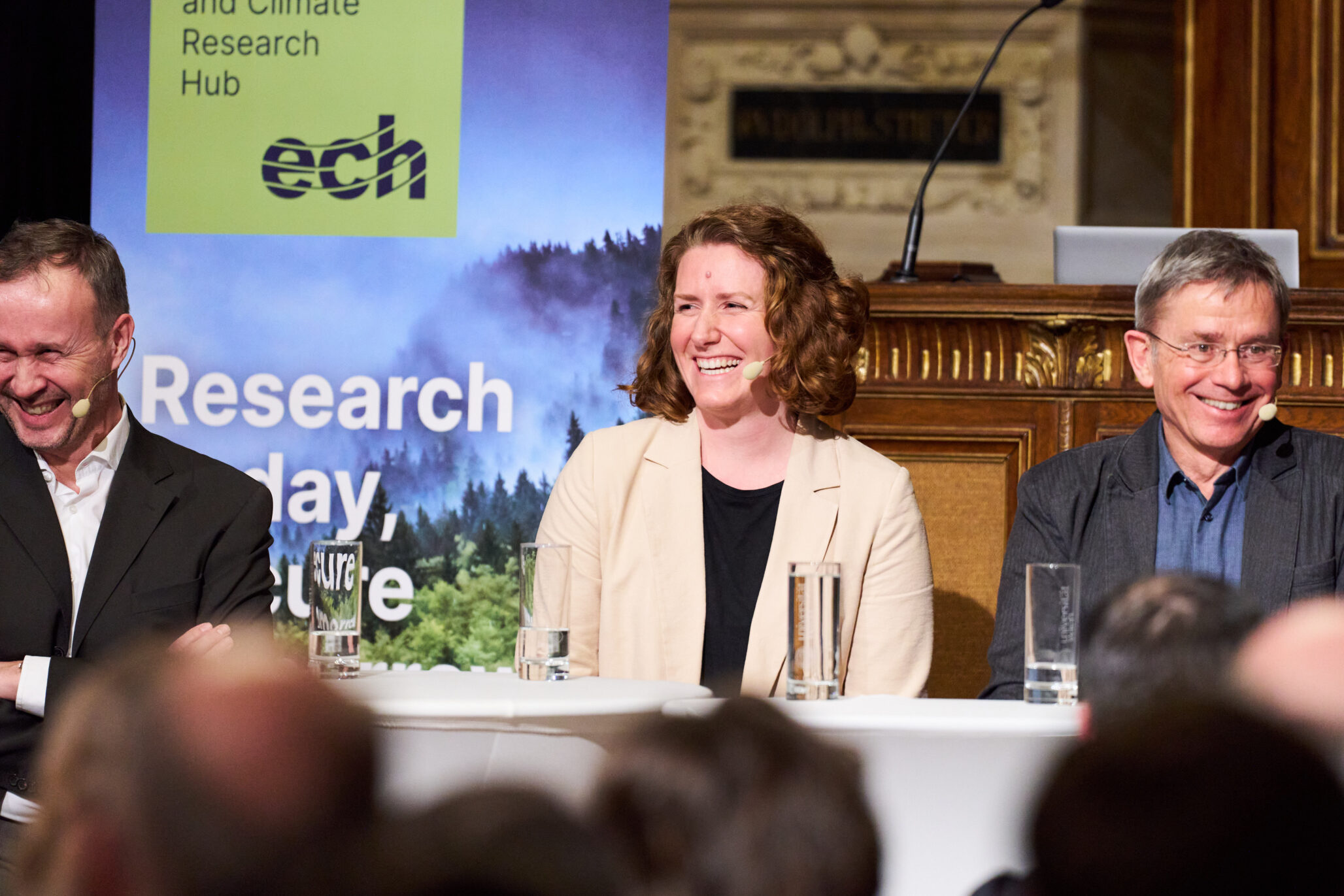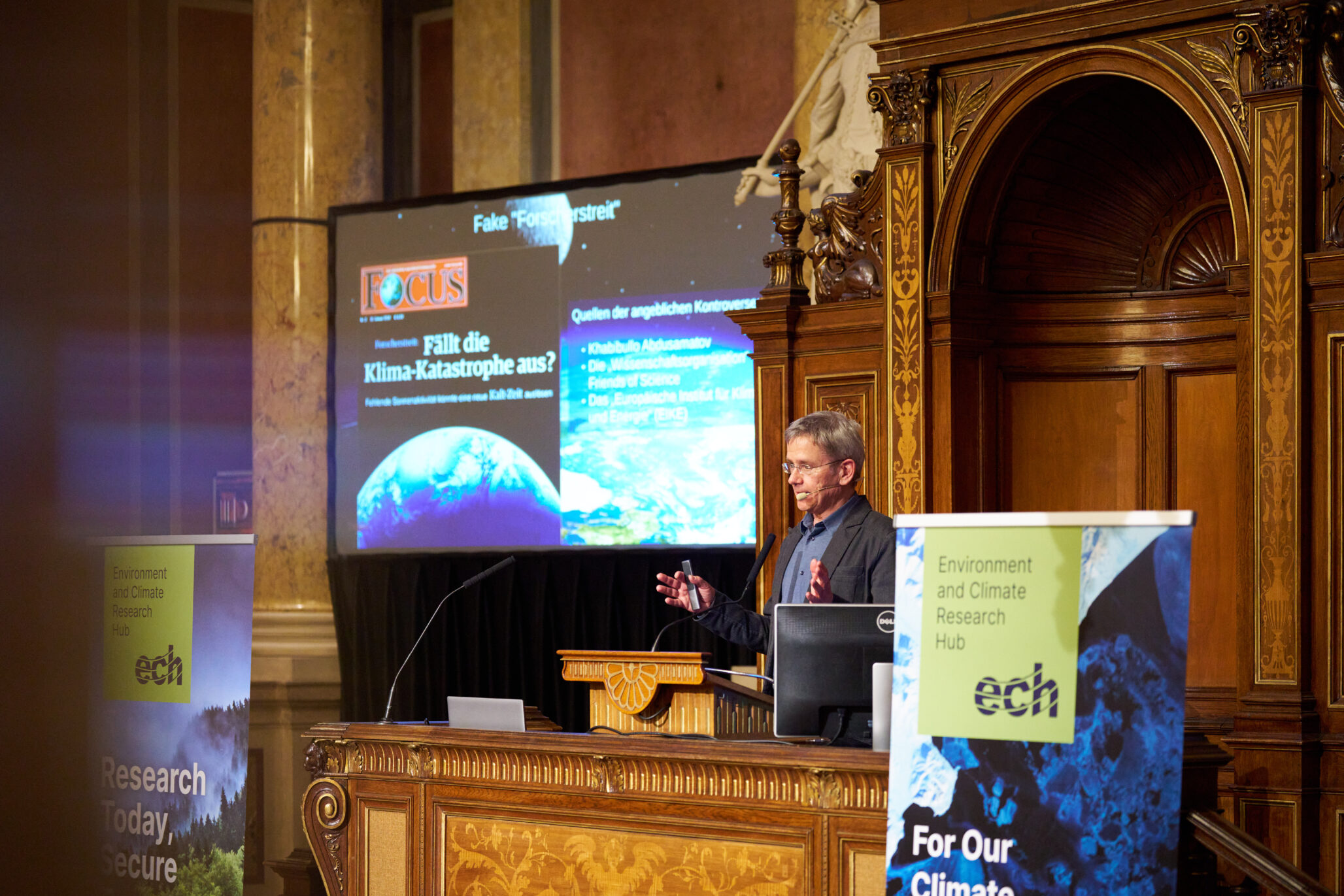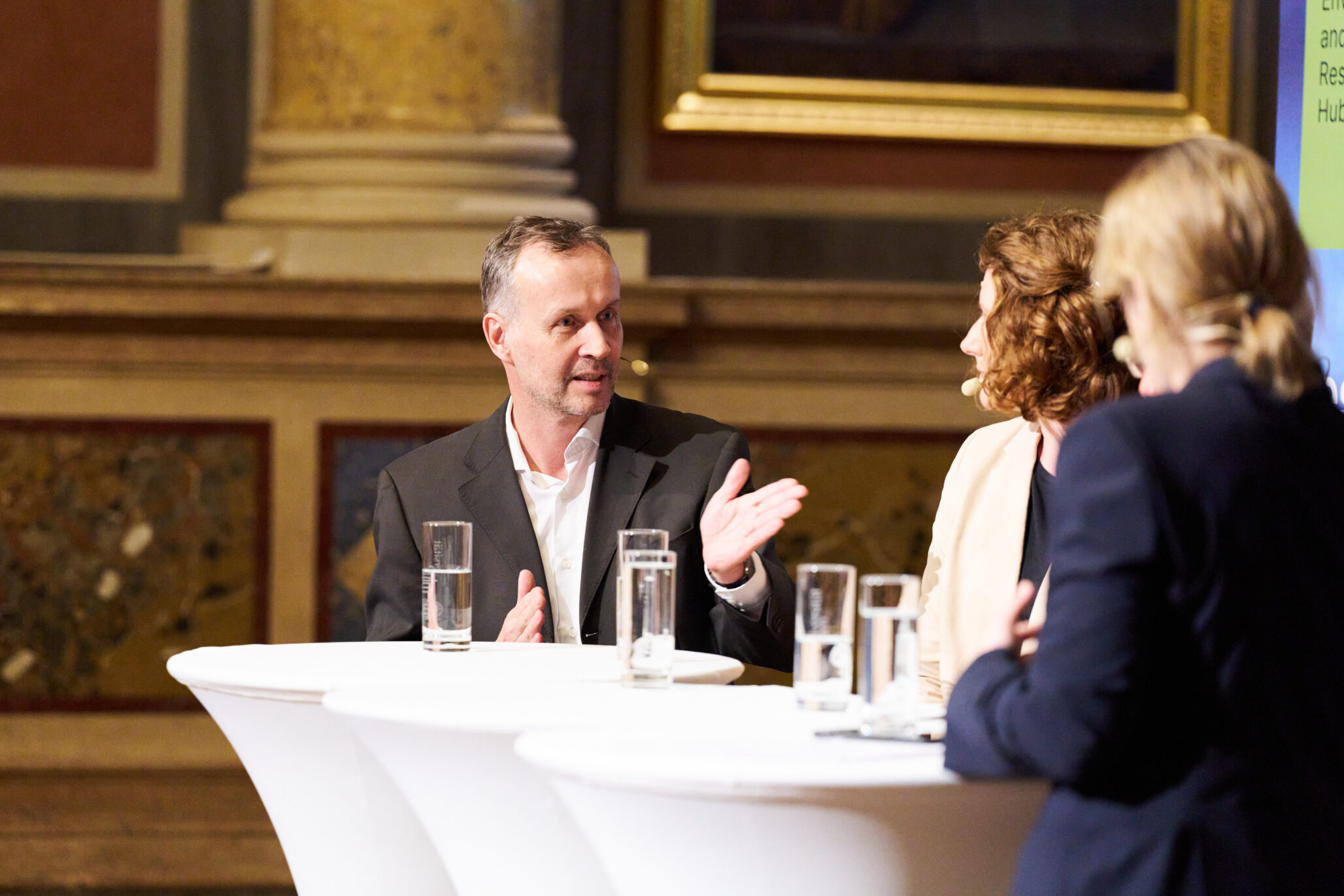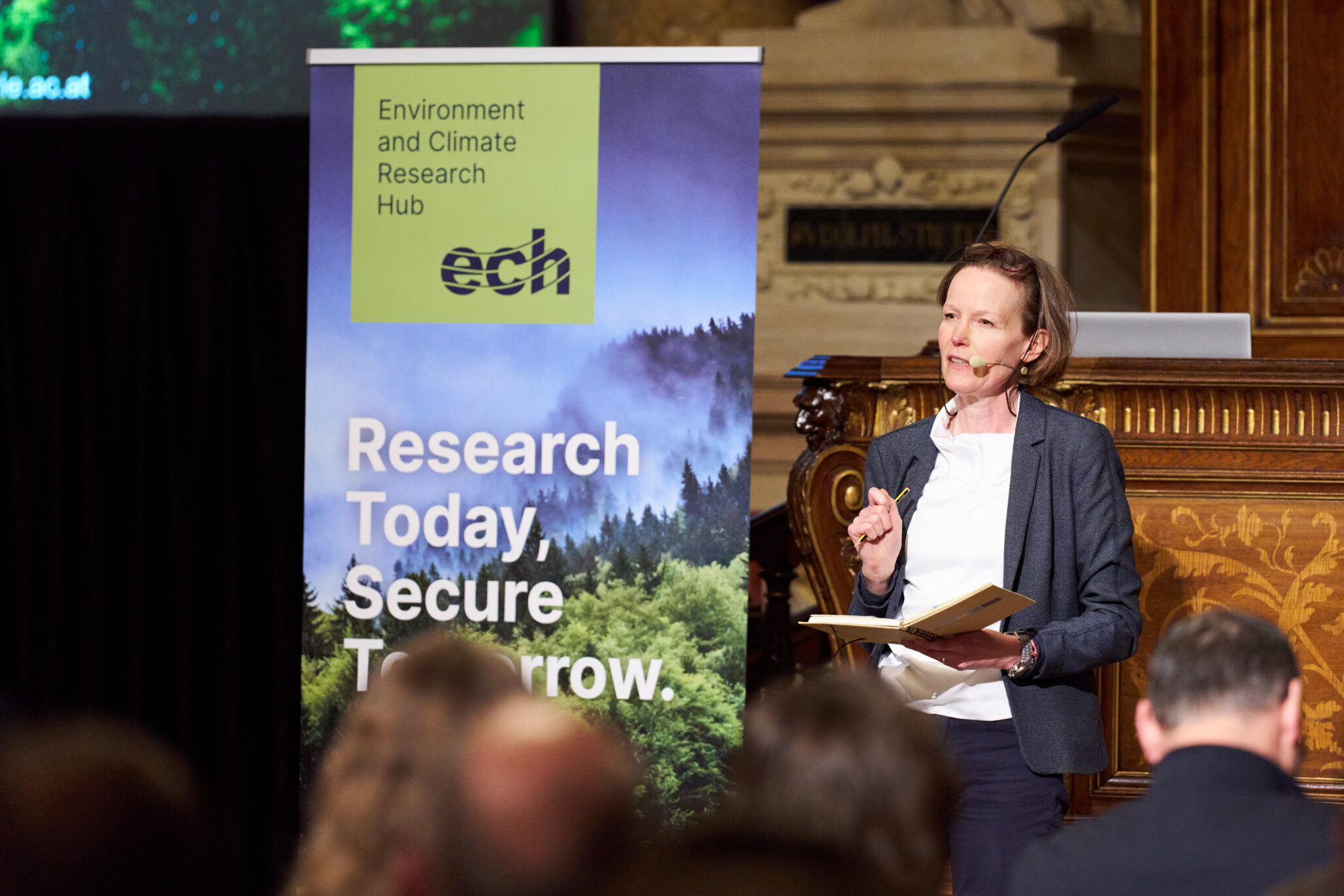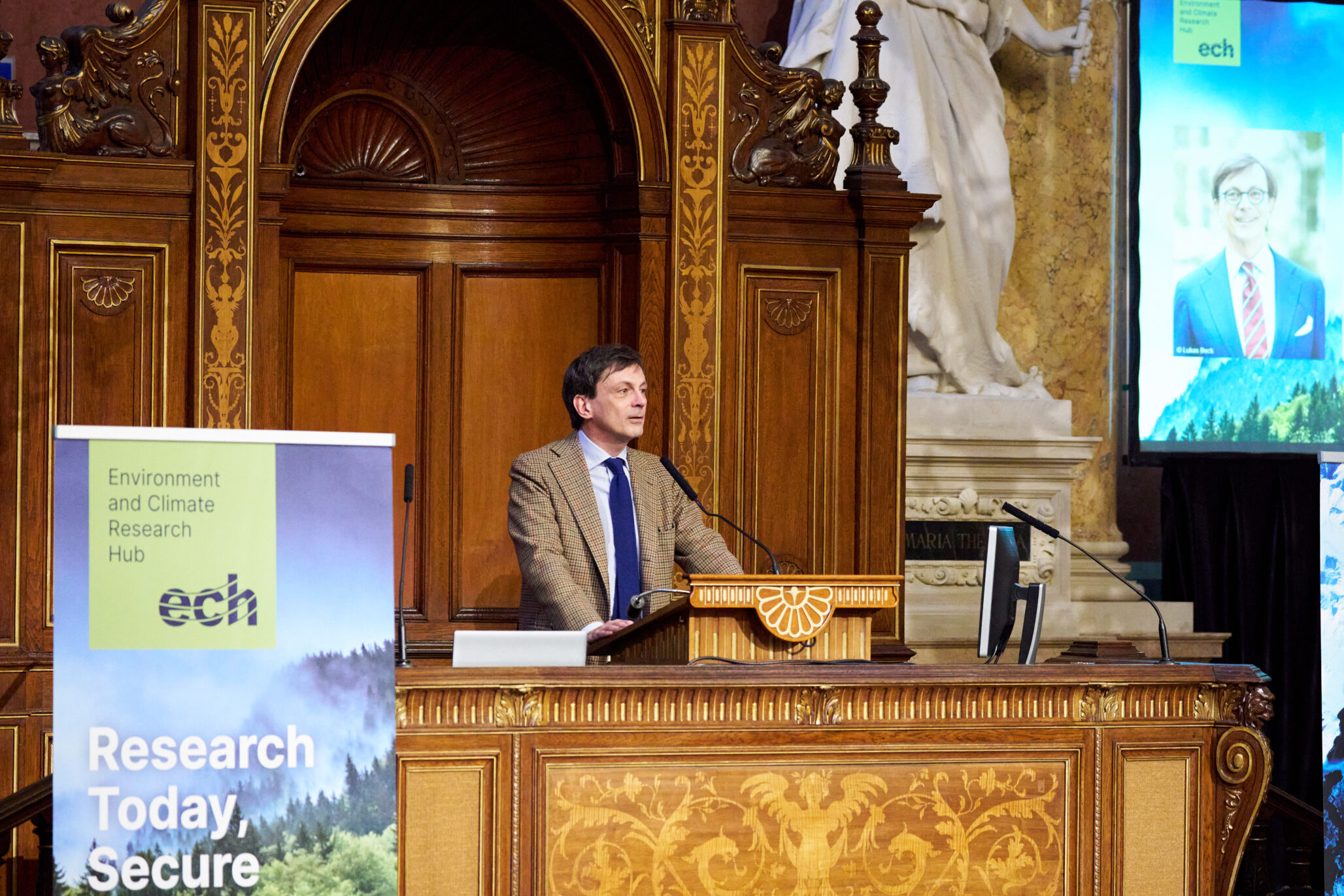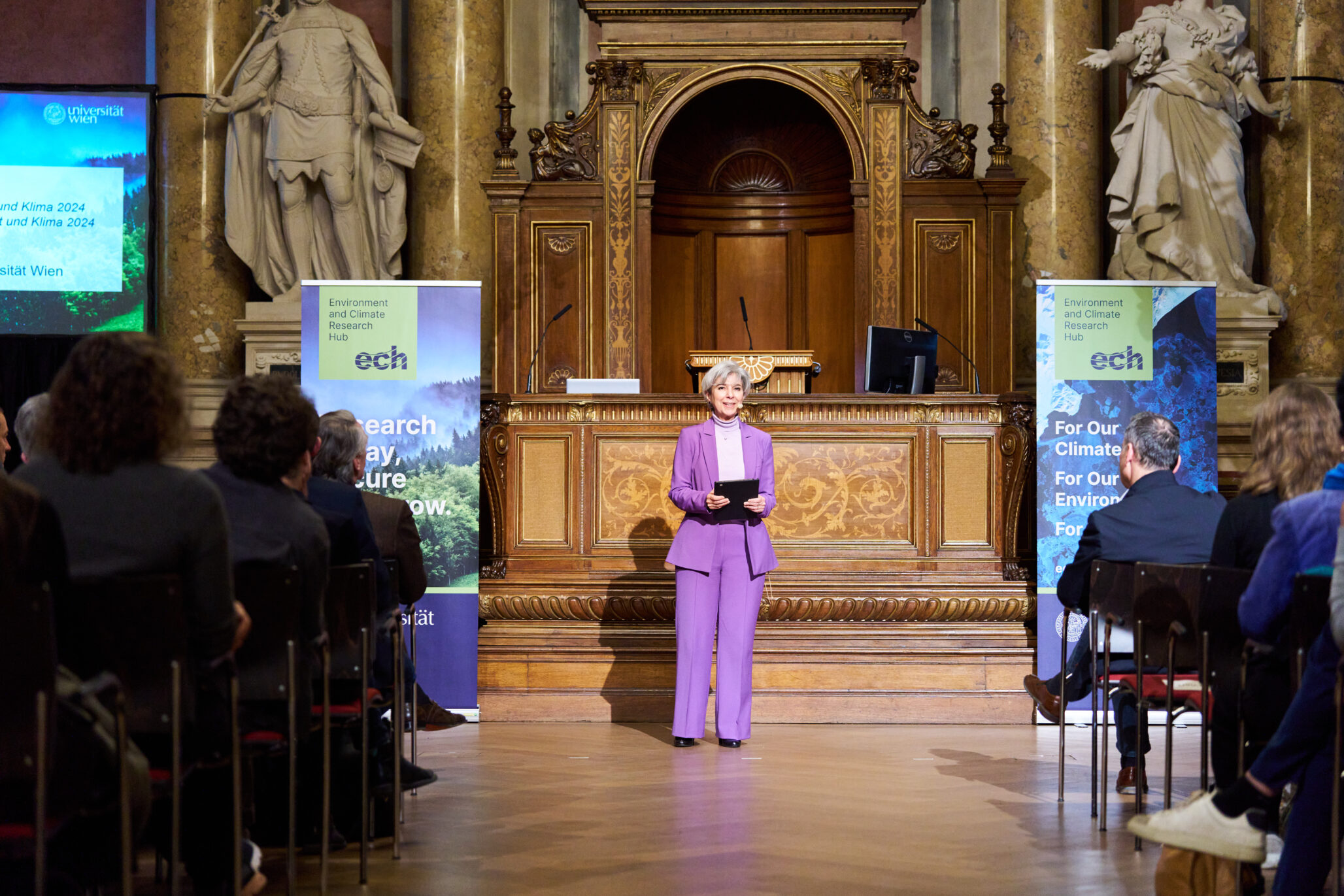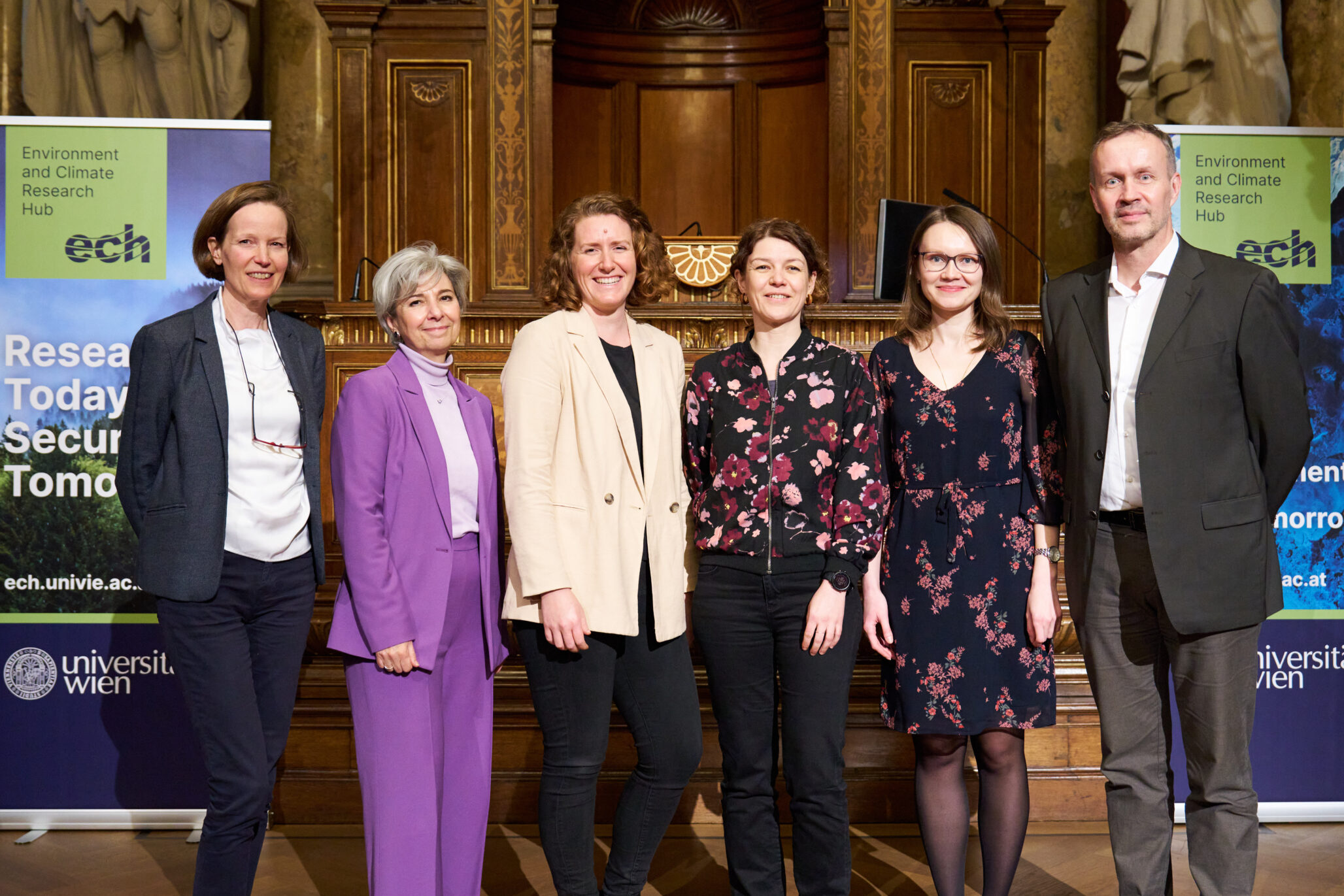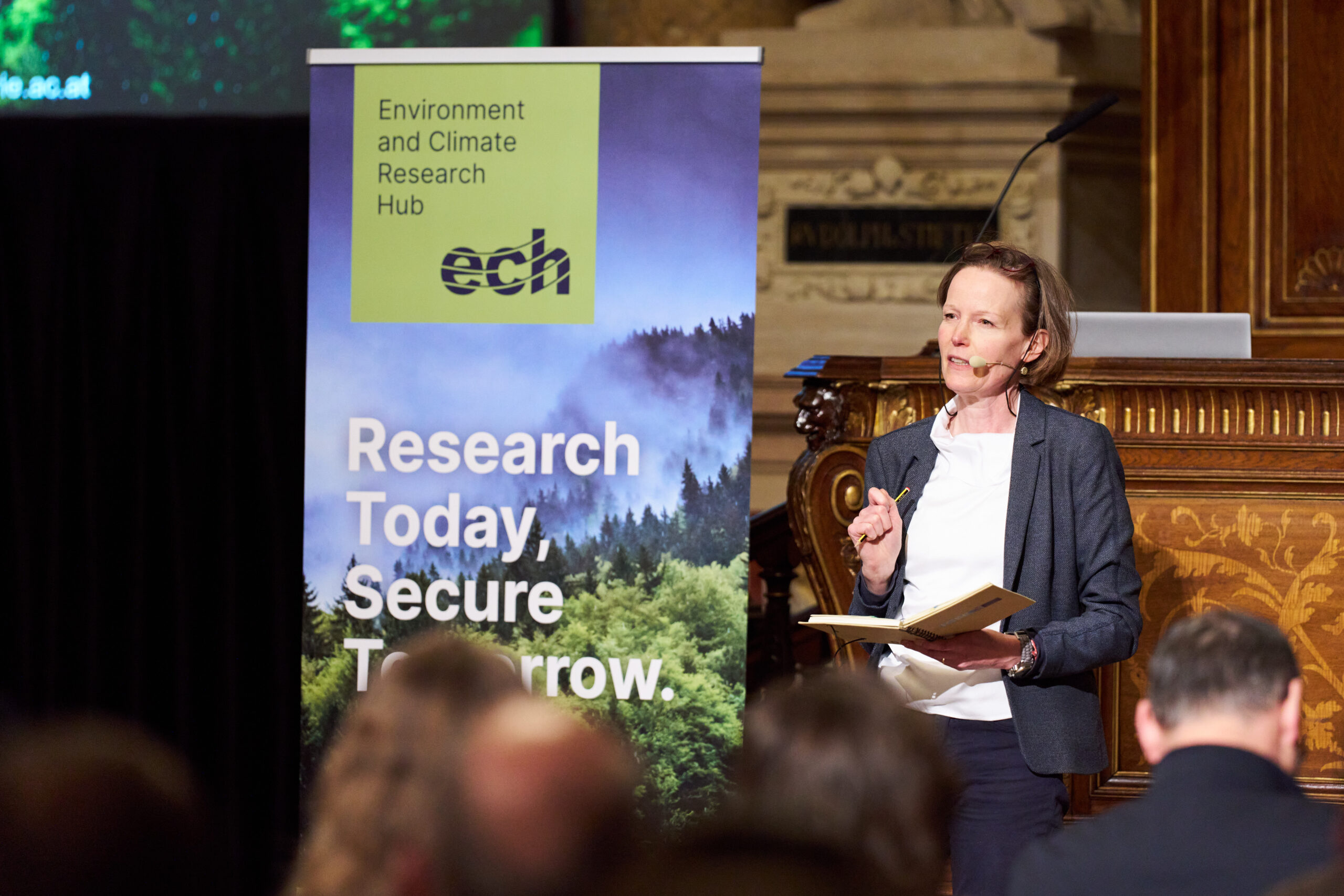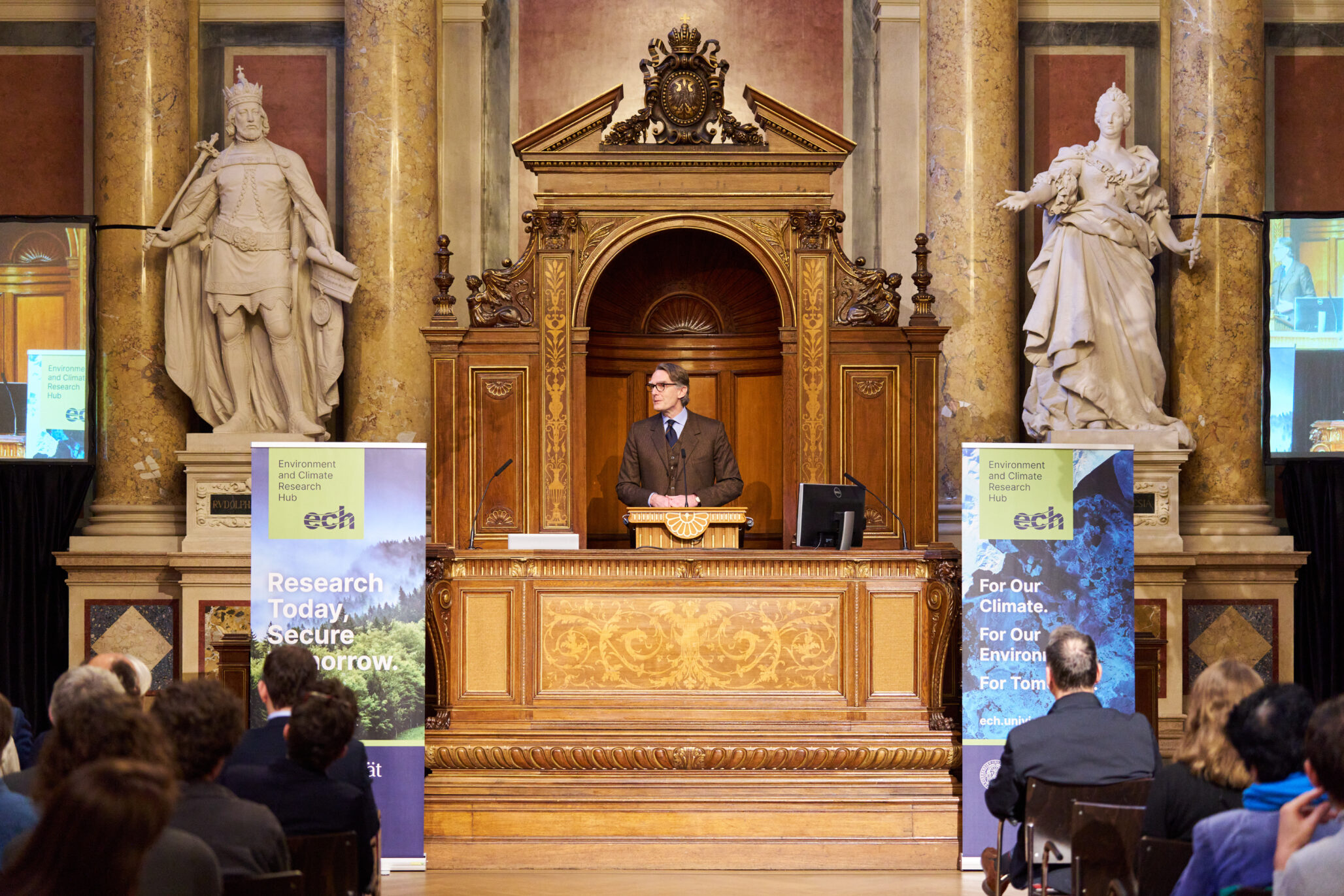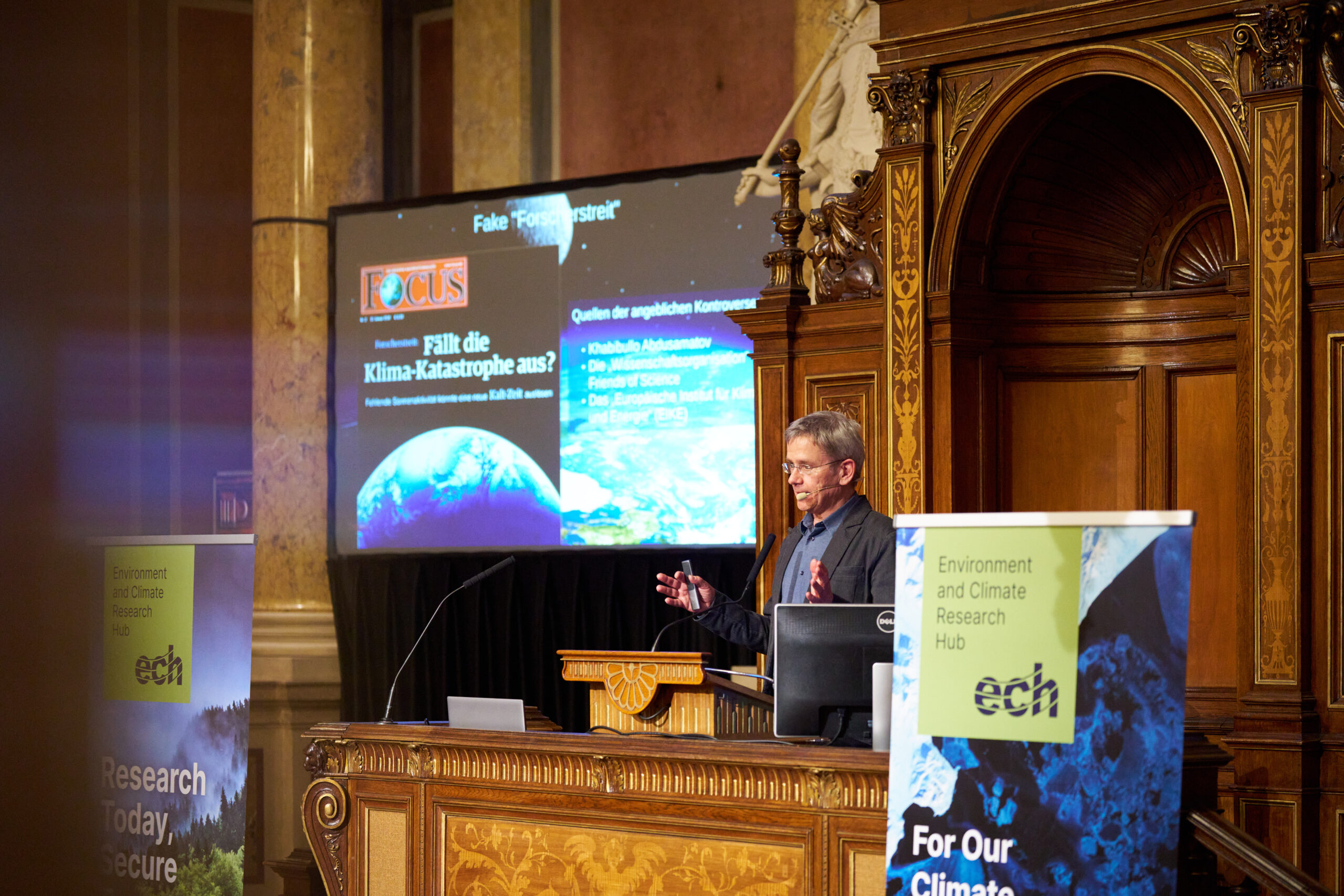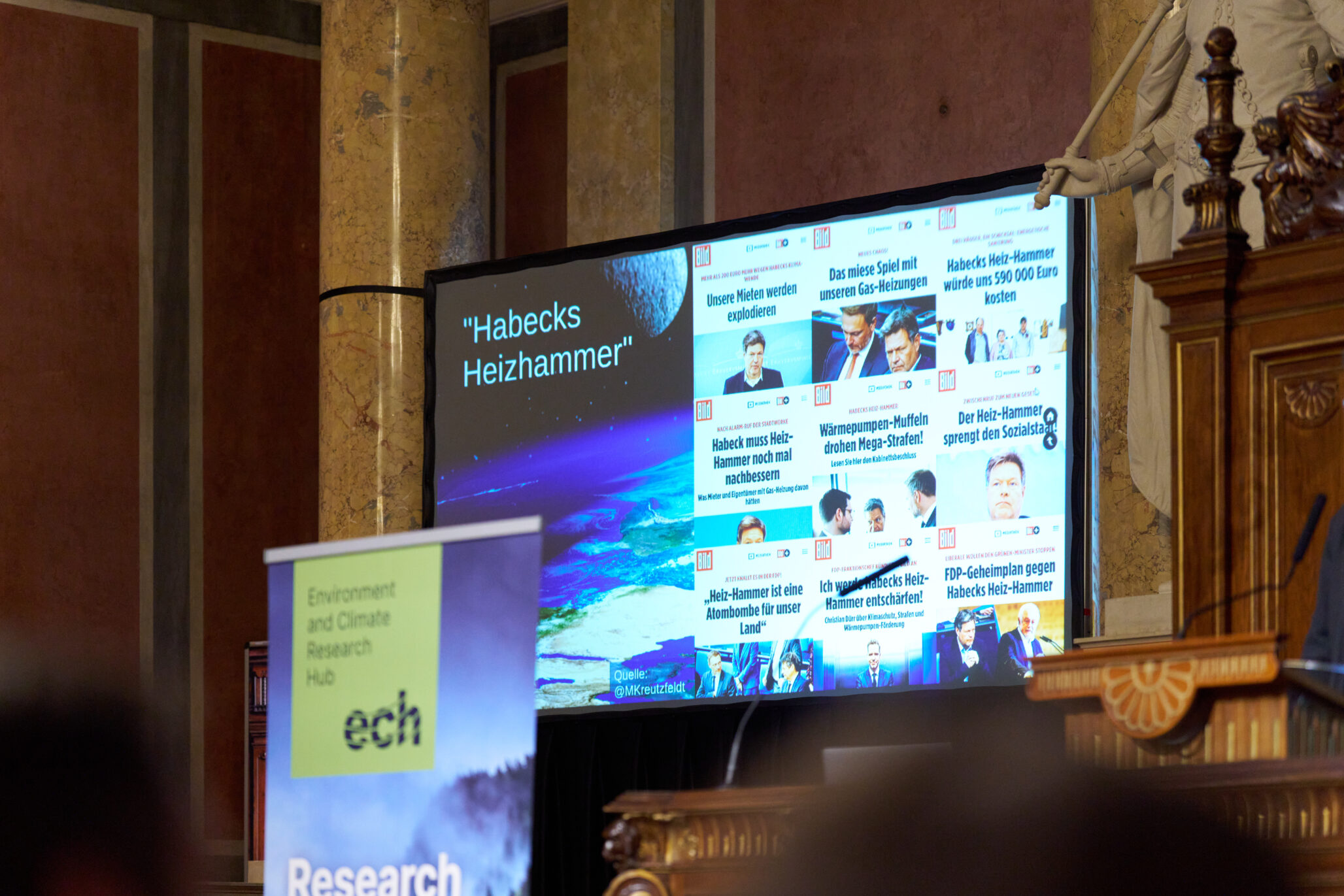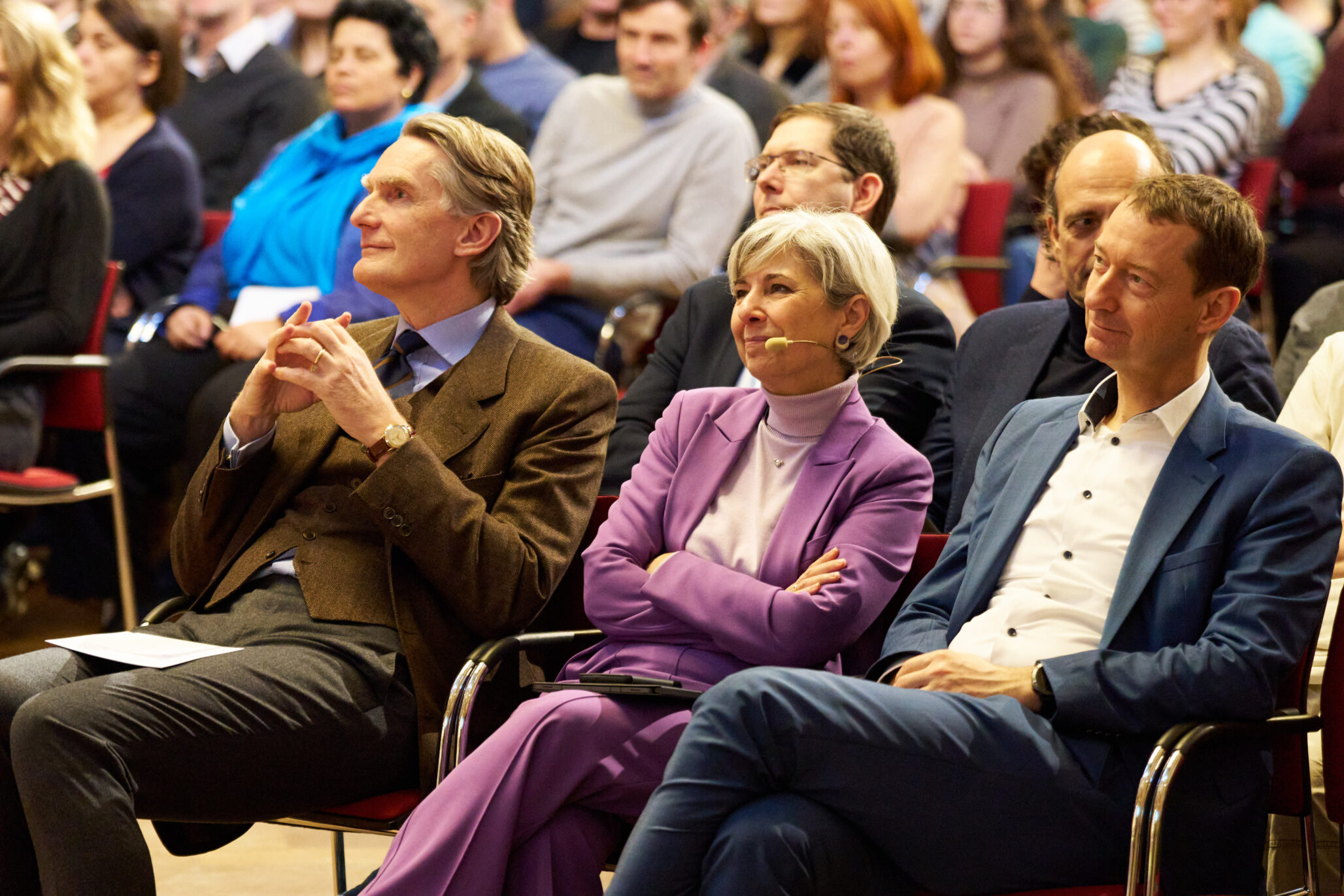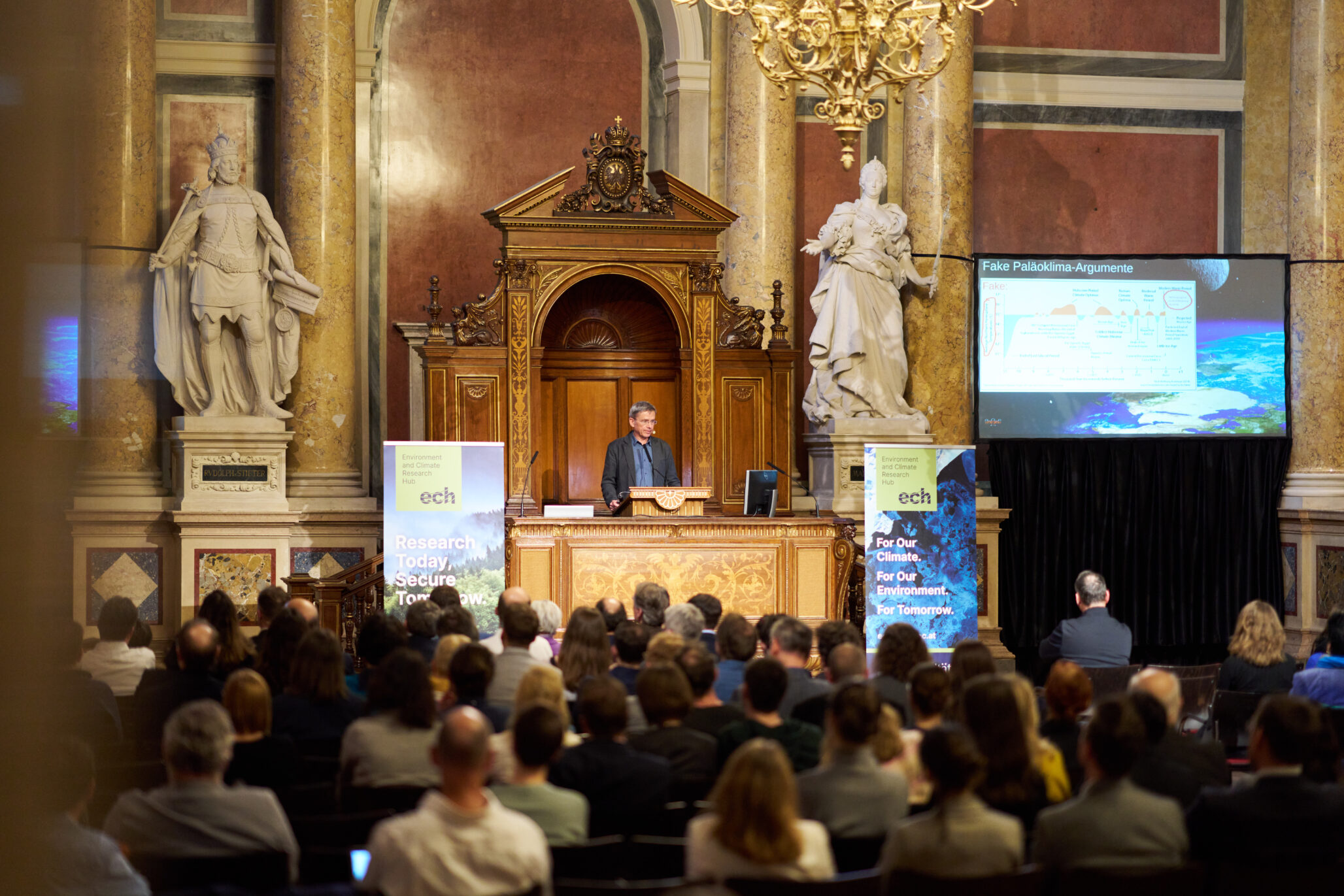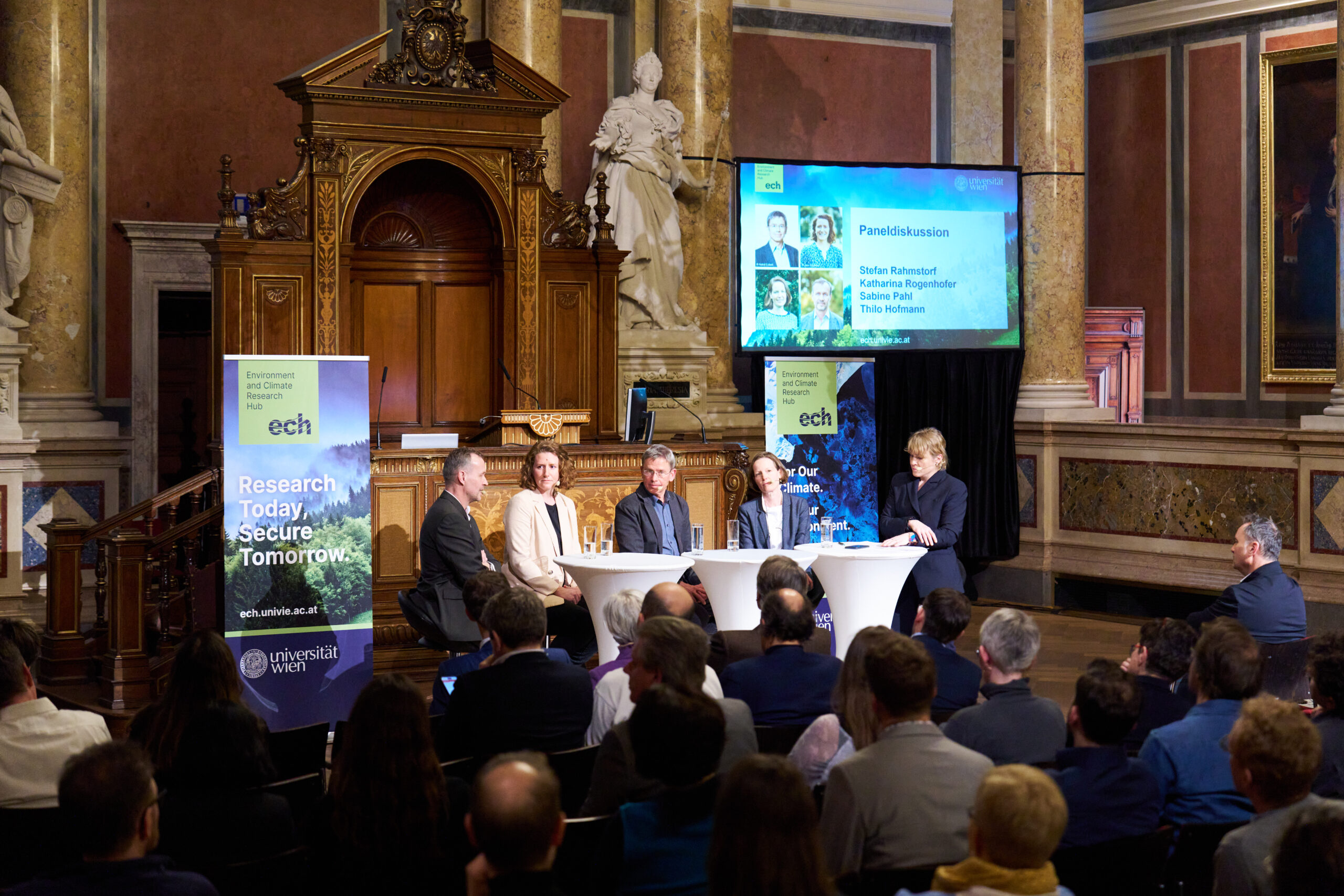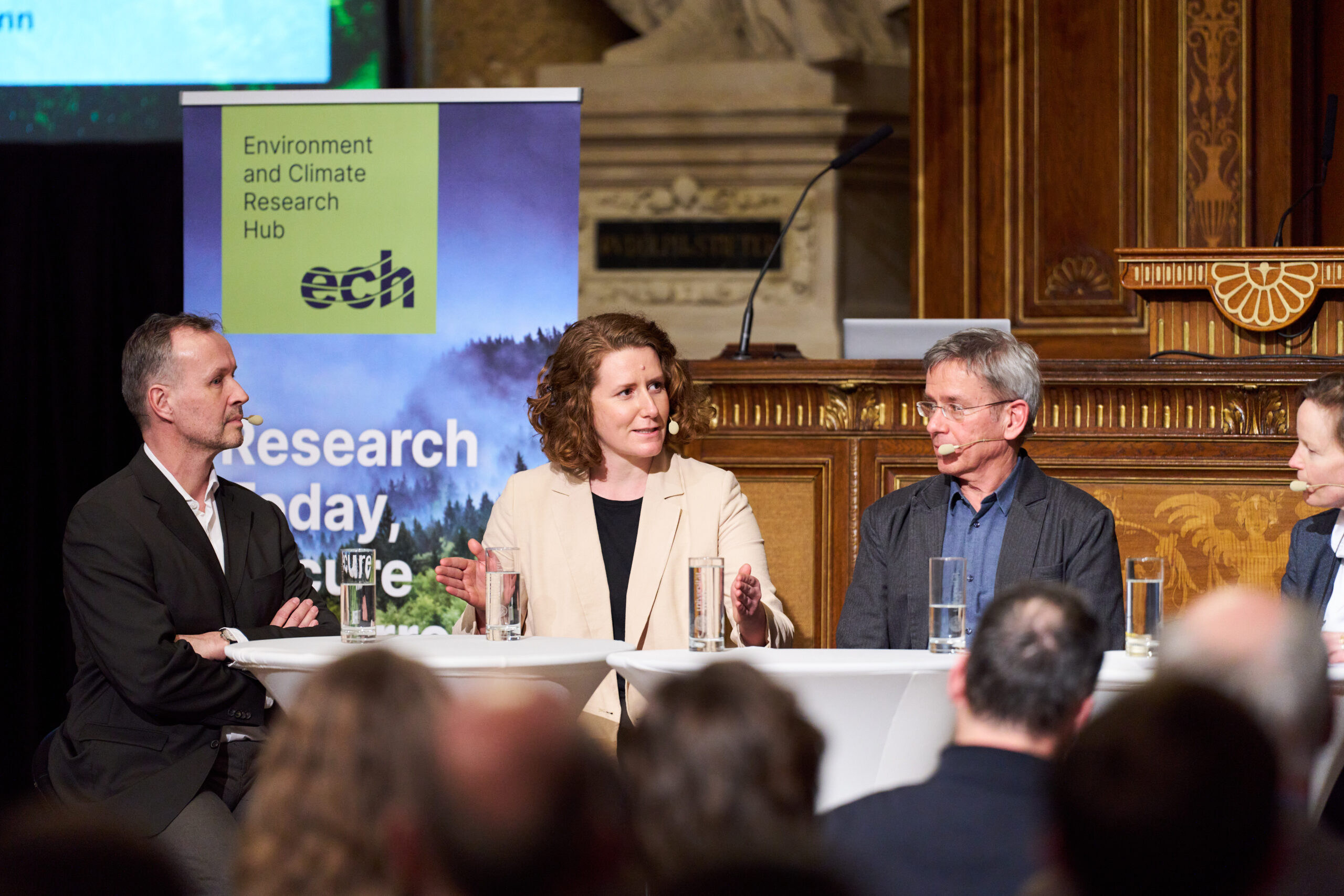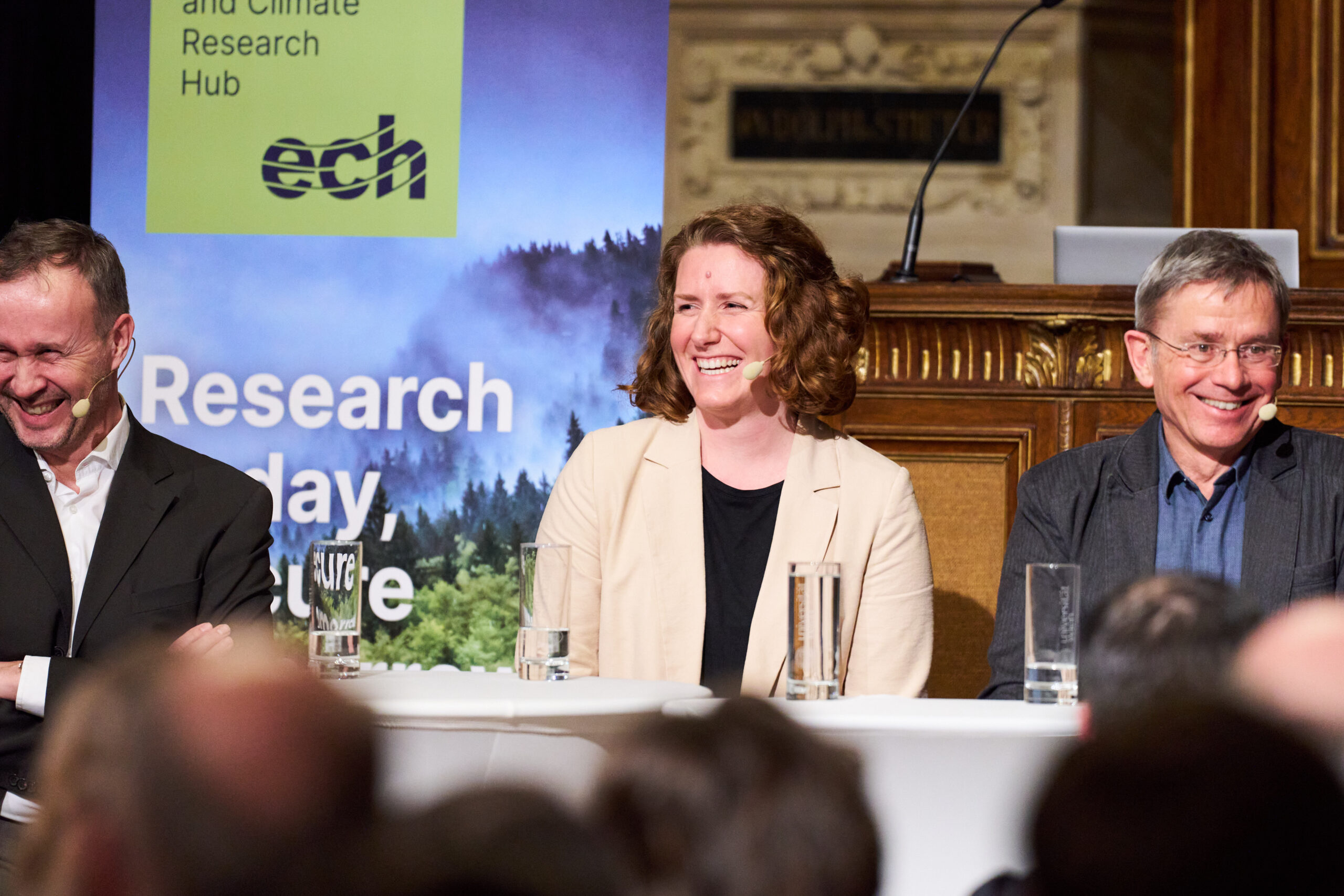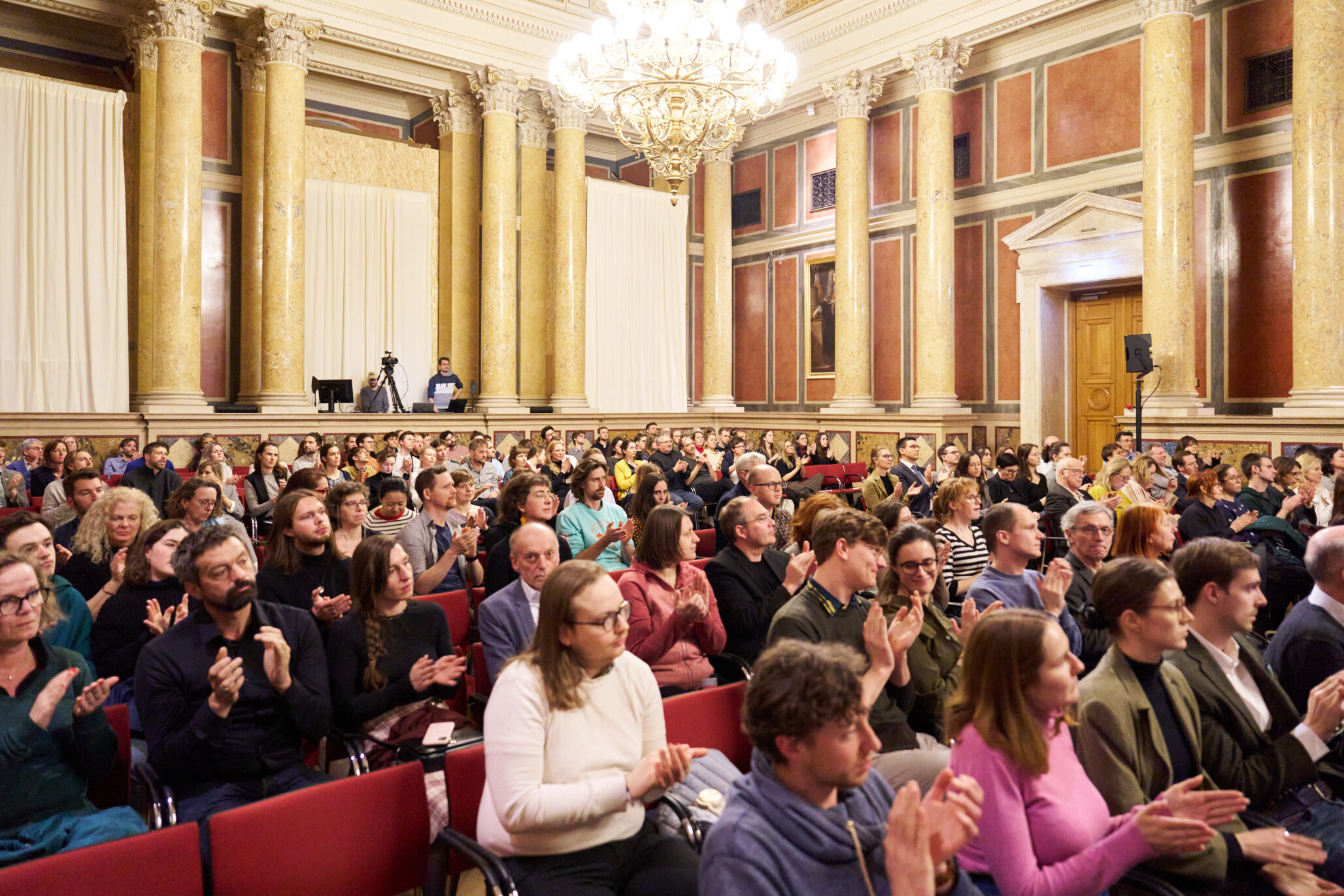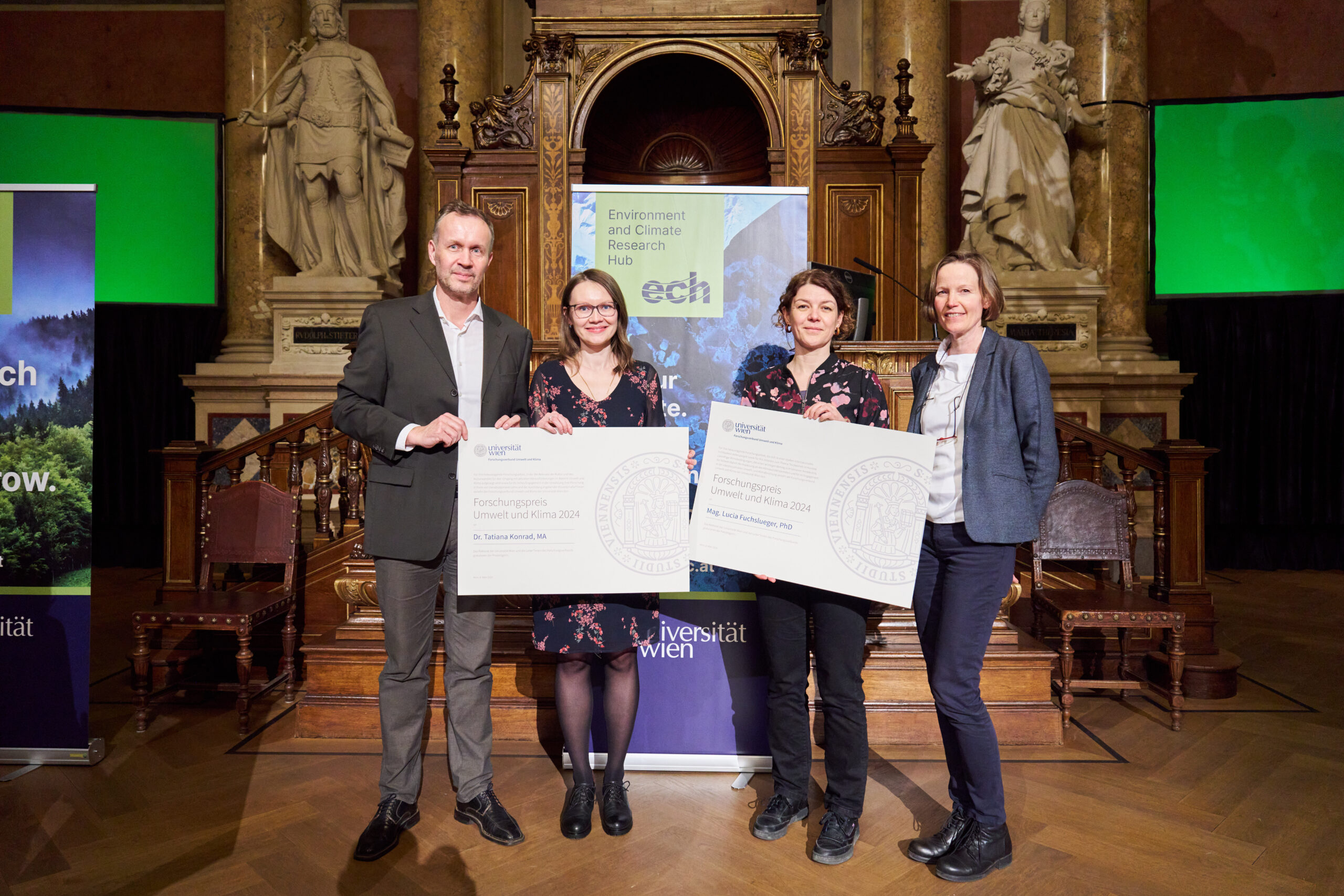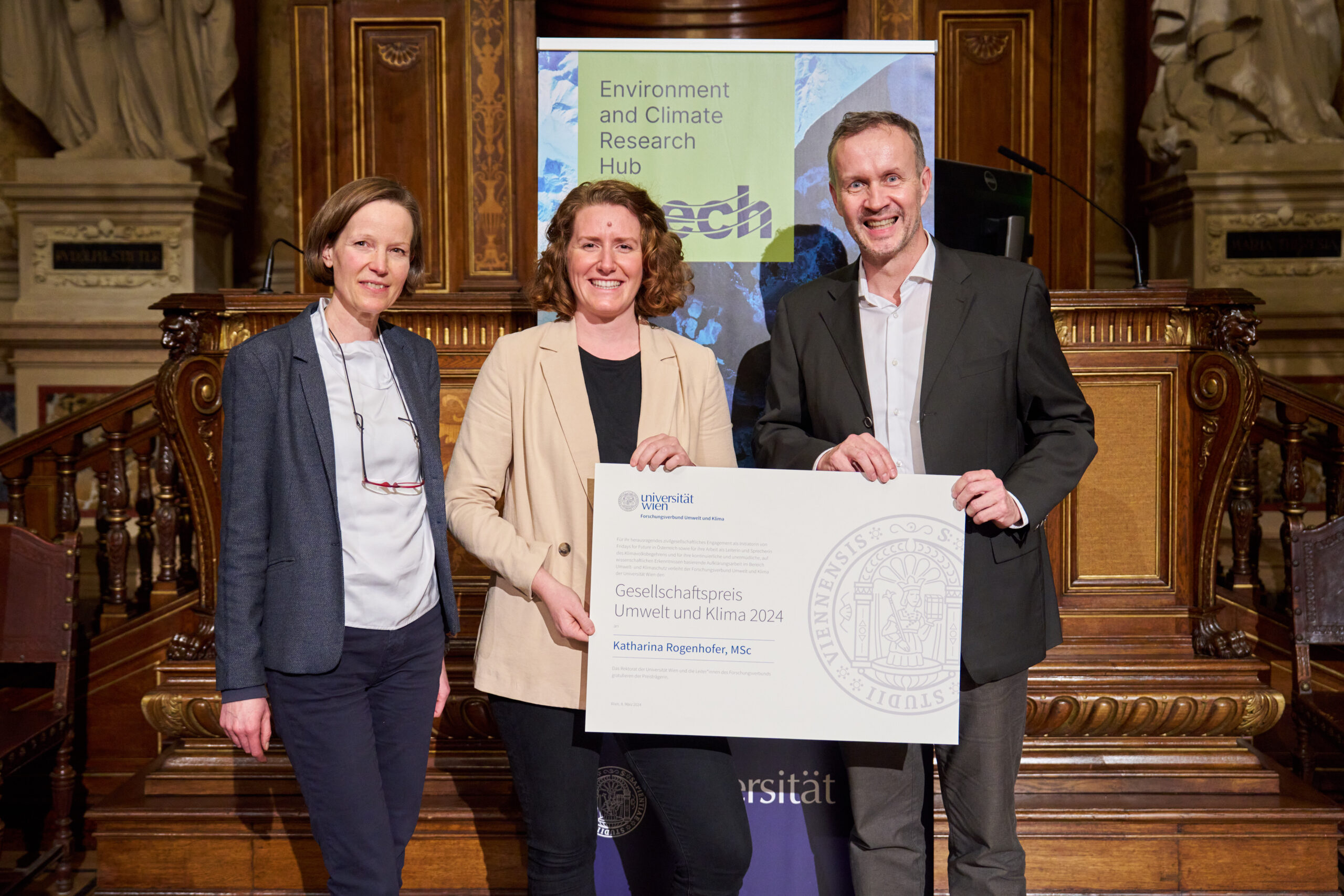About 200 guests attended the inauguration and launch event of the Environment and Climate Research Hub (ECH) on 8 March in the Great Hall of the University of Vienna:
Federal Minister Leonore Gewessler, WWTF CEO Michael Stampfer, Rector Sebastian Schütze and the ECH co-directors Thilo Hofmann and Sabine Pahl gave speeches surrounding the event.
The keynote speech “The climate debate – between science, conspiracy theorists and populists” was given by renowned climate researcher and oceanographer Stefan Rahmstorf from the Potsdam Institute for Climate Impact Research (PIK).
The ECH co-directors then joined Stefan Rahmstorf and Katharina Rogenhofer, co-founder of the Austrian movement Fridays for Future and the KONTEXT Institute for Climate Issues, on the podium for a plenary discussion on the importance of interdisciplinary research in solving environmental and climate issues and communicating with society.
On the occasion of International Women’s Day, the Environment and Climate Research Hub awarded for the first time the ECH Research and Environment Award to two outstanding young scientists, Lucia Fuchslueger and Tatiana Konrad from the University of Vienna, as well as to Katharina Rogenhofer for her commitment to civil society and work on the societal aspects of climate change.
© Markus Korenjak
Creating knowledge and combating science scepticism
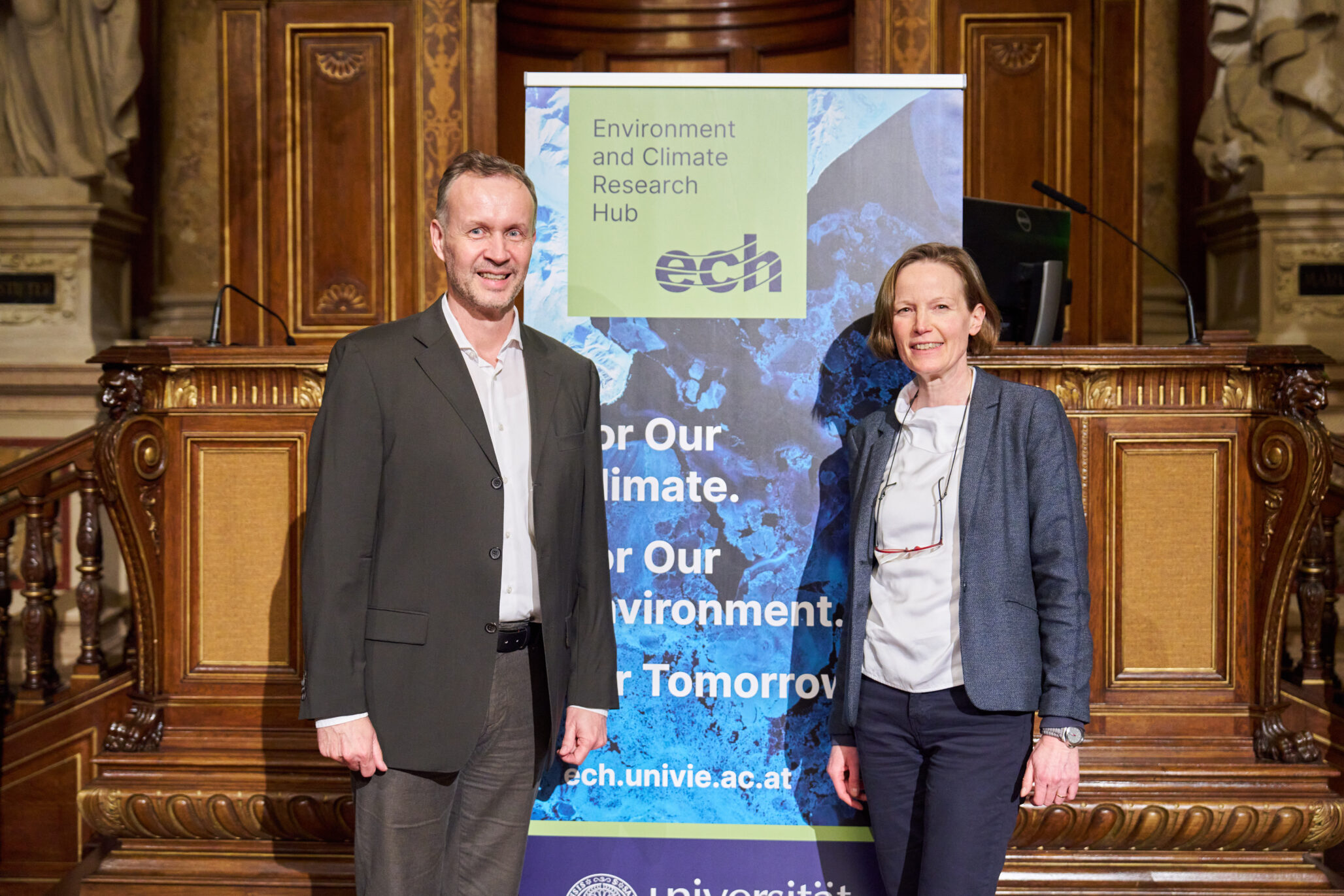
“As scientists, we face more than ever the task of not only doing research, but also of explaining and communicating our findings, thereby strengthening trust in science and discussing what research can and cannot achieve,” said environmental scientist and ECH co-director Thilo Hofmann in his welcoming speech, whilst touching on important principles of the Environment and Climate Research Hub. To solve the major challenges of the century, such as pollution, biodiversity loss, climate change and societal change, we need “interdisciplinary research based on disciplinary excellence”, he continued. This is the only way to constructively counteract science scepticism and the associated decreasing trust in institutions and politics, a phenomenon particularly pronounced in Austria compared to other European countries. “We don’t shy away from difficult questions and seek dialogue,” added co-director Sabine Pahl, an environmental psychologist. The ECH aims to bring researchers together, pooling expertise and, according to Pahl, “enables dynamic and integrative approaches, fostering creativity and new ideas in a world where ‘business as usual’ is no longer an option”.
From a tender seedling to a flourishing research network (ECH)
© Markus Korenjak
Hofmann described the genesis of the ECH as a network of scientists with a shared interest in research on environment and climate, an idea that evolved out of the Environmental Research Network, which he founded 10 years ago together with Ulrike Felt (STS) and Gerhard Herndl (Marine Biology and Zoology). Today, he and Sabine Pahl are proud of the “thriving research network” of 65 researchers and thanked the current rectorate for its strong support of the University of Vienna’s strategic focus on environment and sustainability issues. “Of course we want to continue growing,” said Sabine Pahl, “but we aim to strike a healthy balance, in order to maintain the intense exchange and the common identity that are so important to us”.
Sabine Pahl concluded by emphasising the broad scope of the ECH including both “environment” and “climate”. The ECH focus areas of “climate resilience”, “biodiversity and ecosystems”, “clean environment” and “societal change” are interdisciplinary and at the same time inextricably linked. “We deliberately chose the positive terms, e.g., ‘clean environment’ instead of ‘pollution’ because our research aims to contribute to solutions,” said Pahl.
“We don’t want our children to live in a ‘Mad Max’ world”
© Markus Korenjak
In his welcoming address, Rector Sebastian Schütze emphasised the importance of moving beyond the “departmental box” when it comes to environment and climate topics. With its 65 scientists from 14 faculties, the Hub at the University of Vienna is more cross-cutting than other comparable interdisciplinary centres in Austria”, said Rector Schütze. He thanked the co-directors, Thilo Hofmann and Sabine Pahl, for working together with the members of the Hub to provide fact-based knowledge and for contributing to the current social discourse, because “environmental and climate issues are the major topics of the future”, concluded Rector Schütze.
Austrian Federal Minister Leonore Gewessler used the occasion of International Women’s Day as an opportunity to highlight in her video message the link between the climate crisis and gender inequality, which is particularly prevalent in countries severely affected by global warming. According to Gewessler, women often act more environmentally friendly than men, yet often bear an additional burden “because they are more vulnerable to the consequences of the climate crisis due to structural disadvantages”. Empowering women is therefore crucial for a “more resilient, fairer and future-oriented society”, said the Federal Minister.
“If things go wrong, our children and grandchildren will live in a ‘Mad Max’ world where fuel is the currency,” said Michael Stampfer, Managing Director of the Vienna Science and Technology Fund (WWTF), hereby drawing a parallel to the dystopian action film of the year 1979 in his speech. “Due to its interdisciplinary nature, the Environment and Climate Research Hub is an impressive institution that serves to build bridges – for which I can only congratulate the University of Vienna,” said Stampfer. The WWTF will continue to support cutting-edge research in this field.
“The climate debate – between science, conspiracy theorists & populists”
© Markus Korenjak
In his keynote speech, Stefan Rahmstorf addressed the current issue of science scepticism and targeted disinformation in the climate debate, and shared his thoughts on the potential causes.
“Global warming was predicted before it could be measured,” Rahmstorf said, adding that Alexander von Humboldt had already noted in 1843 that “man is changing the climate by cutting down forests […] and by developing large masses of steam and gas in industrial centres”. Nobel laureate Svante Arrhenius calculated an increase of four degrees as early as 1896, Rahmstorf continued, and global warming has increased for decades, in line with predictions. “The scientific facts have been on the table for a long time now,” said Rahmstorf, “but you still have to explain to many people that global warming is 100 per cent human-made. This disconnect is due to a well-funded disinformation campaign by the fossil fuel lobby, which actively supports climate denial, coupled with an “astonishing failure of the media, who does not expose the lobby’s activities, but instead contributes to the spread of misinformation”. False narratives on research controversies are created, climate sceptics are given too much space in discussion formats under the pretext of offering balanced opinions, and fake news is spread on real climate solutions such as wind and solar energy, electromobility and heat pumps. The ECH builds a bridge between science and society and “this is exactly what we need in the fight against populism and disinformation on climate issues”, said Rahmstorf in the subsequent panel discussion.
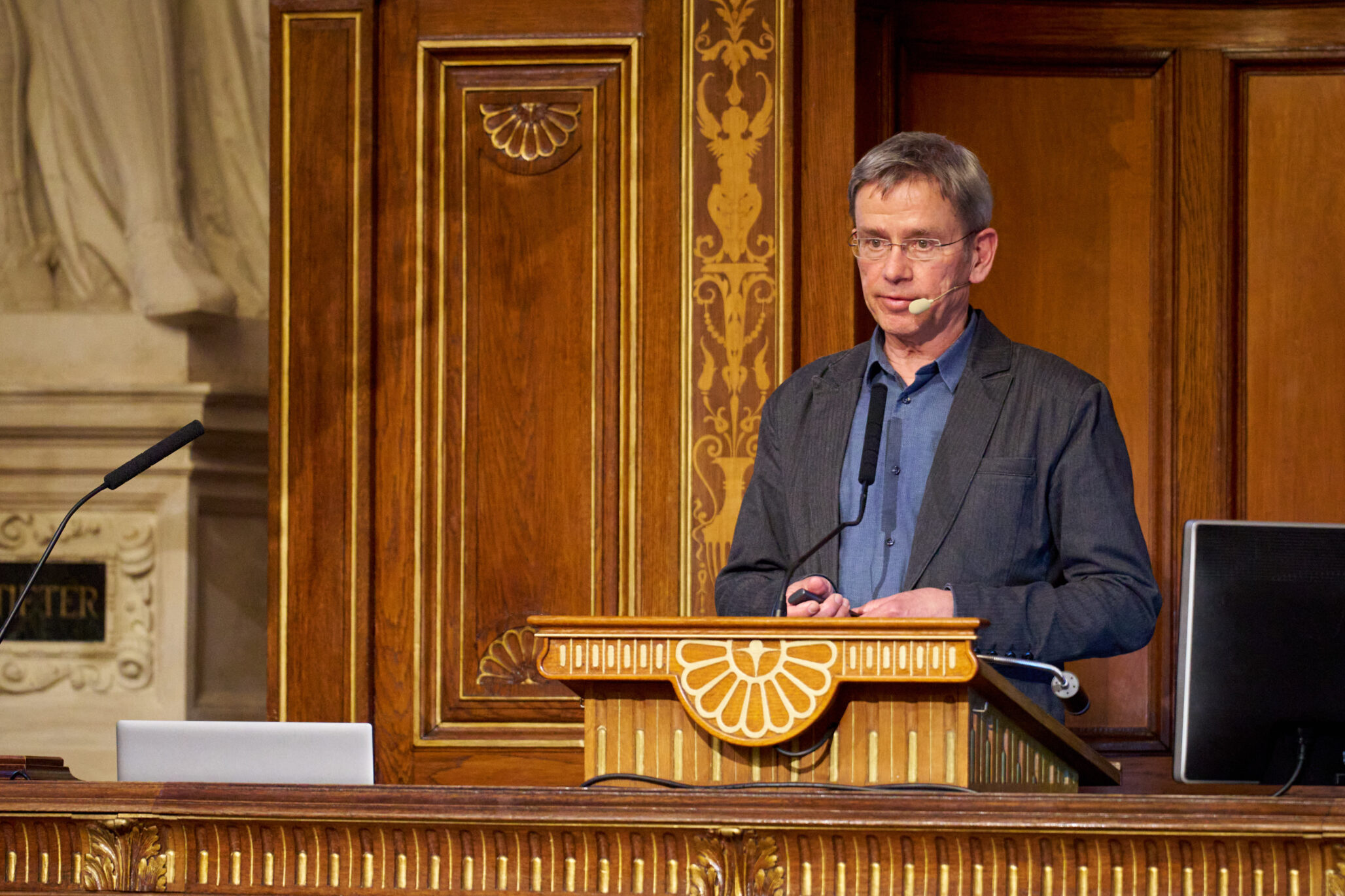
“The Environment and Climate Research Hub builds a bridge between science and society. This is exactly what we need in the fight against populism and disinformation on climate issues”.
Panel discussion: How can knowledge about environmental and climate issues be communicated successfully to politics and the public?
The panel discussion, moderated by Marlene Nowotny (Ö1), directly built on the topic presented by Stefan Rahmstorf. Climate researcher Rahmstorf and Katharina Rogenhofer, co-founder of the Institute for Climate Issues Context, both discussed how the scientific community can deal with disinformation and populism surrounding environment and climate issues, how science should be communicated to ensure that findings are recognised by policymakers, and how the consequences of climate change can be made more visible and tangible to the public.
“The climate debate has reached the public,” said Katharina Rogenhofer, “people are thinking about solutions. The problem, however, is that there is currently massive disinformation about the solutions. The panel agreed that climate scientists should emphasise how the consequences of climate change are already clearly noticeable in our lives. In order to motivate and encourage people, communication needs to address values and emotions in addition to scientific facts, according to environmental psychologist Sabine Pahl. “By using different framings, such as the concrete effects of climate change on health and biodiversity, the issue can be made more tangible and therefore relevant”, Pahl continued.
The research network in dialogue
“The Environment and Climate Research Hub aims to communicate science and to engage in public debate through various formats, such as the bi-annual “Environment in Conversation” discussion series held at the Vienna Natural History Museum,” explained Thilo Hofmann. Further, the ECH cooperates closely with the Climate Change Centre Austria (CCCA), the ScienceCenter Network and the City of Vienna. An important goal of the ECH, according to the co-directors, is to provide the scientific basis for evidence-based policies at local and federal levels, integrating knowledge from international networks and best practice examples.
© Markus Korenjak
Research and Environment Prize of the Environment and Climate Research Network (ECH) awarded for the first time
© Markus Korenjak
At the end of the ceremony, Vice-Rector Manuela Baccarini presented the first ever ECH Research and Environment Award in two categories. “The world’s pressing problems can only be solved together,” said Baccarini in her laudatory speech, and together here means “with the combined expertise, talent and passion of scientists from all disciplines, together with representatives of civil society who are committed to the meaningful application and constructive handling of scientific findings”.
In the first category, the Research Award honoured the excellent research by early-career scientists at the University of Vienna. On the occasion of International Women’s Day, the achievements of two female early-career scientists were highlighted:
Lucia Fuchslueger from the Department of Microbiology and Ecosystem Research and Tatiana Konrad from the Institute of English and American Studies were honoured for their research that “has made an important contribution to the understanding of climate change,” said Baccarini.
In the second category, the ECH honoured Katharina Rogenhofer with the Society Award Environment and Climate 2024 for her “tireless and committed work that motivates people of all generations to take action”, as Manuela Baccarini noted. In her laudation, Baccarini emphasized that Katharina Rogenhofer always combines her passion for a sustainable future with scientific rigour, drawing on the latest findings in environmental and climate research.
